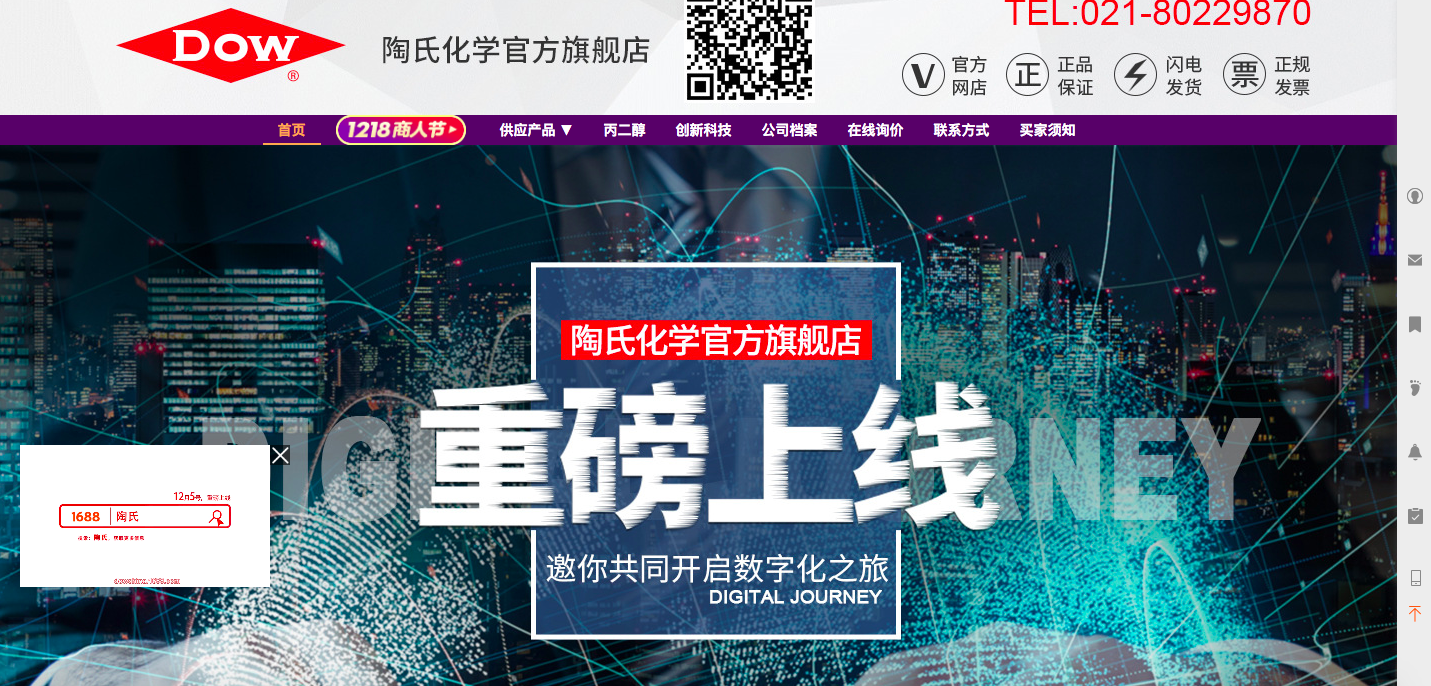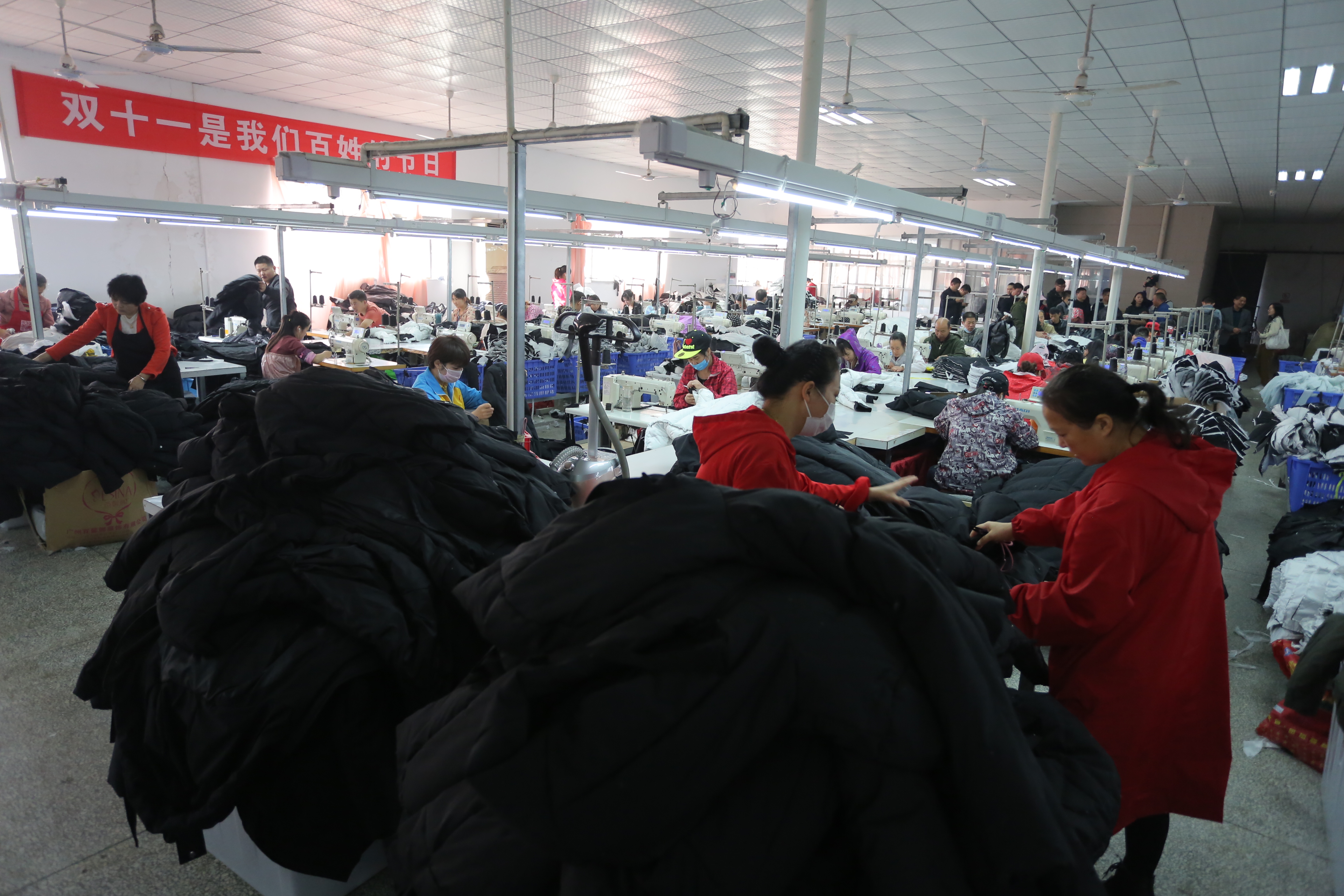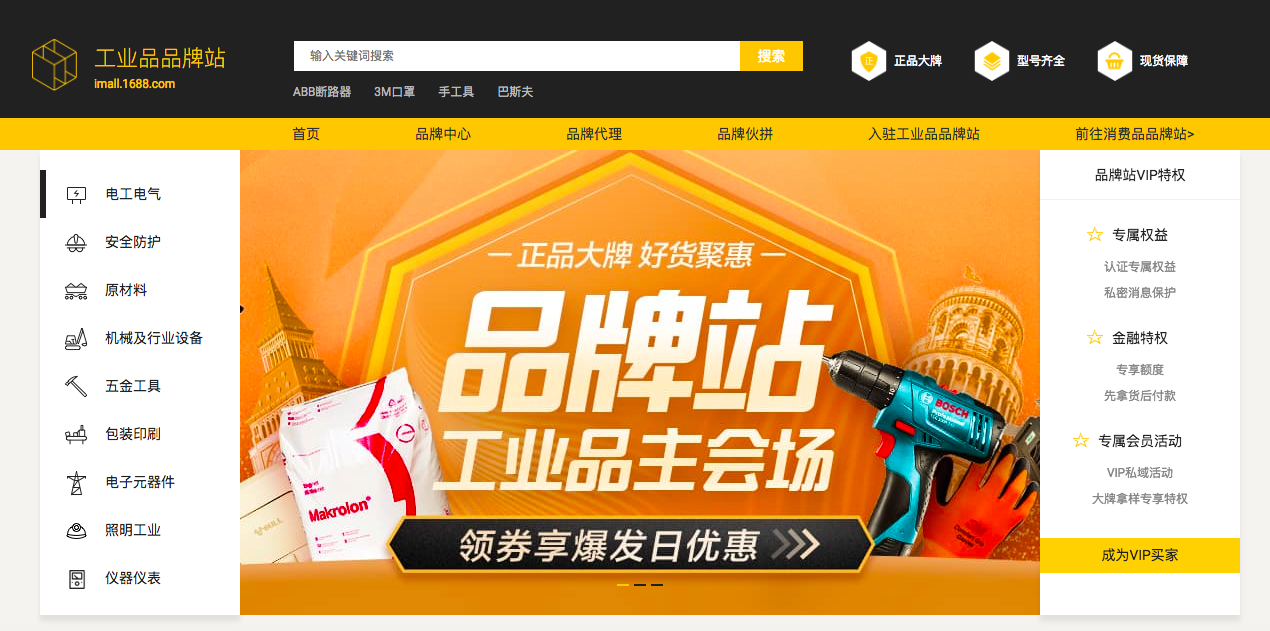
Dow Chemical, one of the world’s largest chemical makers, has opened a flagship store on Alibaba Group’s China-focused B2B purchasing and wholesale marketplace, 1688.com.
It’s the latest move onto 1688 by a global chemical company, as industrial suppliers adapt to a new generation of buyers who want the same seamless, online shopping experiences as retail consumers.
Dow also has a presence on the 1688 Enterprise Procurement Platform, an open marketplace for over 300,000 suppliers and buyers, including 300 major private and state-owned conglomerates such as China Railway Group and China Tobacco, that launched in August. The platform offers a suite of services, from publishing tenders and managing contracts to finding nearby suppliers and customizing a cloud-based procurement system. The platform offers financial services to users as well.
“China is a world leader in e-commerce platforms and the Internet of Things technologies enabling them. This, combined with Chinese customers’ preference for smooth and safe online shopping, creates an ideal environment for Dow to expand our online presence and diversify our sales and service channels,” said Yoke Loon Lim, president of Dow Greater China.

According to consulting firm KPMG, China is by far the world’s largest consumer of chemicals, expected to represent 40% of global market share by 2020. Now, Chinese buyers can purchase some of Dow’s most popular products on its flagship store, including 14 industrial ingredients that cover markets including polyurethanes, food, personal care, coatings, automotive, home decoration and agrichemicals.
In the future, Lim said the firm hopes to work closely with Alibaba to explore more areas of innovation, including artificial intelligence, cloud computing, analytics and smart logistics technologies.
Digitizing B2B Commerce
China’s largest wholesale platform for industrial products, 1688 is home to more than 10 million enterprise storefronts, with 150 million users visiting the site per day. Though little known outside China, the site is a go-to sourcing destination for merchants selling on Alibaba’s e-commerce sites Taobao and Tmall, said 1688.

The platform remains domestic-focused, but 1688 in recent years has been expanding its cross-border wholesale business, including bringing foreign suppliers onto the platform and setting up a new marketplace for retailers looking to source products for overseas markets. Meanwhile, 1688’s Tao Factory program helps manufacturers make efficient, agile use of their production capacities by means of technology and “factory-sharing,” outsourcing unused capacity during the off-season to fulfill orders for clients, while analytics help match order requirements with suitable factories.
In August last year, the platform introduced IMALL, short for “Industrial Mall,” a dedicated marketplace for major industrial brands and their official distributors. Dow is the latest brand to open a storefront on IMALL, now counting up to 3,000 brands, including big-name international manufacturers BASF, ABB, Mobil, 3M, Bosch, Henkel, Honeywell, Stanley Black & Decker, Evonik and Covestro.
Direct Portal to Quality Materials
Direct-to-customer stores help brands expand their reach to more customers in China, including small to mid-sized enterprises in lower-tier cities, said 1688. SMEs looking to upgrade their businesses can engage directly with top-tier suppliers, benefiting from better ingredients and know-how to improve their craft and product development.
Dow’s Lim said the company currently operates 11 offices in China, from top-tier cities to tier-two and tier-three cities, such as Urumqi, Chengdu and Xian.
“But we clearly recognize that, in China’s expansive market, there are still many SME customers and niche markets we haven’t been able to reach. The desire to continue optimizing our services and sales processes is what initially motivated us to open the online flagship” store on 1688, he said.
Alibaba Group Vice President Wang Hai said the China market continues to add new SMEs, making it a challenge for brands to reach them effectively.
“This is where digital platforms play a critical role,” he said.

Aside from finding new customers, digital stores offer brands opportunities to discover hidden demand and even new, creative areas of application, which feeds back to their packaging design and marketing strategies, said Qiu Xuelian, head of IMALL.
Stanley Black & Decker, the New Britain, Connecticut-based tools and hardware giant, found a Chinese restaurant chain bought wood grinders in large quantities for their kitchens, for the unexpected purpose of smoothing out damaged cutting boards, she said.
Wang said that 1688, similar to Tmall for consumer brands, looks to help industrial brands boost efficiency on all steps of the process through digitalization, from supply chain management to product design.
“Ultimately, we want to close the distance between companies and the market and their customers, and finally, help them achieve a consumer-to-business model,” he said, referring to the C2B strategy promoted by Alibaba where consumer demand drives company strategy. It’s a bottom-up approach to business rather than the more-traditional top-down.
“Alibaba will work with forward-thinking, innovation-embracing companies to explore how digitalization can change all aspects of the value chain,” Wang said. “In the end, it’s about providing a better experience for end users.”




